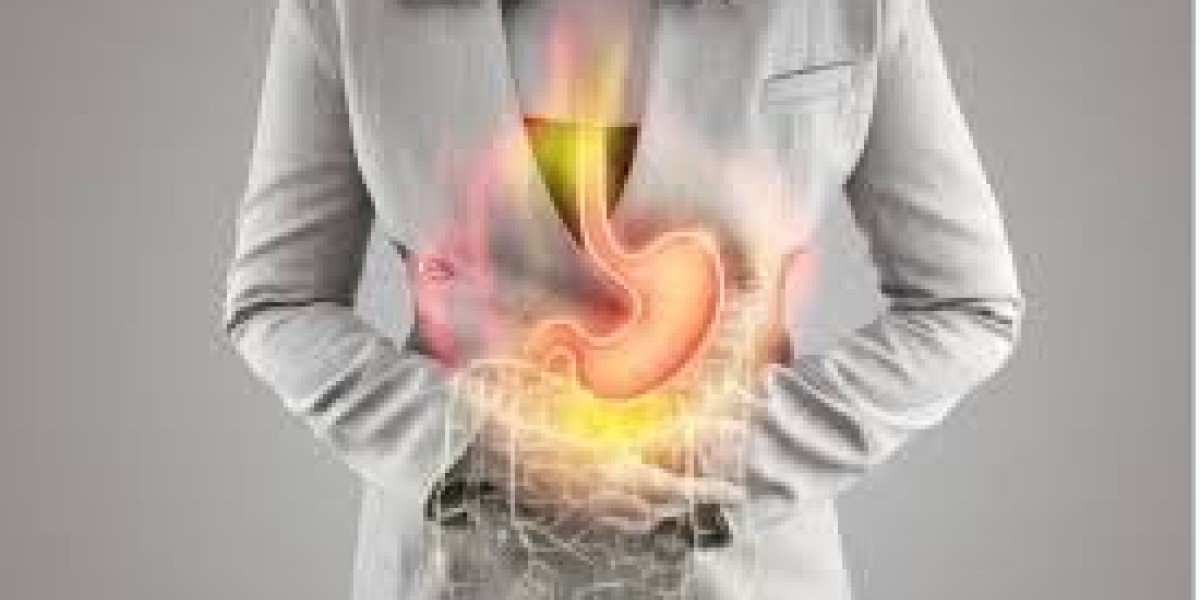Pain in the Upper Stomach That Comes and Goes: Solutions and Causes
Intermittent pain in the upper stomach may be like an unwelcome mystery. It might happen after eating, wake you in the middle of the night, or appear out of nowhere—sharp, dull, or crampy. While occasional stomach discomfort might not seem a reason for alarm, repeated upper stomach pain is something to pay attention to. This article breaks down common causes, when to seek a visit with a physician, and how medications like Aspadol 50mg (brand name Nucynta, active ingredient Tapentadol) are prescribed to treat pain.
What Is Upper Stomach Pain?
The upper stomach, or upper abdomen, is between your chest and your belly button. Pain in this area can come from your stomach, liver, gallbladder, pancreas, or upper intestines. The pain can be variable in intensity and duration—anything from a sharp pinch to ongoing discomfort.
Common Causes of Upper Stomach Pain That Comes & Goes
1. Indigestion (Dyspepsia)
Indigestion can produce discomfort, bloating, and nausea. It most often happens after meals and may be irregular depending on your diet and stress level.
2. Gastritis
Inflammation of the stomach lining, usually caused by infection (like H. pylori), NSAIDs, or alcohol, can lead to episodic upper abdominal pain, especially between meals.
3. Gallstones
Gallstones obstruct the bile ducts, causing stabbing, crampy pain in the upper right quadrant of the abdomen. Pain spreads to the back and is often intermittent.
4. Pancreatitis
Inflammation of the pancreas causes a deep, burning epigastric pain, usually intermittent in chronic pancreatitis.
5. GERD (Acid Reflux)
Acid reflux can cause burning pain in the upper belly and chest. It's generally worse when you are lying down and after eating.
6. Functional Dyspepsia
It is recurring indigestion with no obvious reason. It can cause recurring upper stomach discomfort.
7. Muscular Strain or Injury
Sometimes the pain isn't from the organs but from strained abdominal muscles, especially after lifting, twisting, or heavy exercise.
When Should You Be Concerned?
While occasional mild pain is not serious most of the time, you should speak with your physician if your upper stomach pain:
Lasts and gets worse over time
Followed by vomiting or bleeding in the stool
Results in unexplained weight loss
Occurs with fever, jaundice, or chest pain
Interrupts your daily life or sleep too frequently
Treatment Options for Upper Stomach Pain
Treatment depends on the cause. The following is a general overview:
Antacids or PPIs for acid-related disorders
Antibiotics for H. pylori infection
Diet adjustment to reduce triggers
Surgical removal of gallstones (cholecystectomy) if the stones are severe
Abdominal cramps and inflammation, painkillers
If pain is acute or associated with chronic disease, stronger pain relief might be needed—this is where medications like Aspadol 50mg come in.
Aspadol 50mg: A Pain Relief Specialist
What is Aspadol 50mg?
Aspadol 50mg is a prescription pain medication prescribed to manage moderately severe acute pain, particularly when other analgesics are not effective. Tapentadol is the active ingredient of Aspadol, a centrally acting opioid painkiller. It also comes under the brand name Nucynta in most markets.
How Does Aspadol Work?
Aspadol 50mg works through dual mechanisms:
Mu-opioid receptor agonism: This inhibits the transmission of pain signals in the spinal cord and brain.
Norepinephrine reuptake inhibition (NRI): This raises brain levels of norepinephrine, which contributes to pain modulation.
Together, these mechanisms make Tapentadol highly effective in the treatment of acute or chronic pain, including some types of stomach or belly pain caused by inflammation or surgery.
Use of Aspadol 50mg for Abdominal Pain
If the upper stomach pain is caused by post-operative pain (e.g., post-gallbladder surgery), post-pancreatitis recovery, or chronic gastrointestinal illness leading to recurrent intense pain attacks, Aspadol 50mg may be prescribed for a short term.
Tapentadol must not, however, be employed for ordinary indigestion or minor abdominal discomfort. It is only for severe acute pain in the hands of strict medical supervision.
Key Points
Dosage: Take precisely as advised by your doctor. Usually 4 to 6 hours apart.
Avoid alcohol: Combining alcohol with Tapentadol can increase the risk of respiratory depression.
Not for chronic use: Aspadol 50mg is generally recommended for sudden pain attacks due to the risk of dependence.
Side Effects: Sleepiness, lightheadedness, constipation, nausea, and dry mouth are common. If you experience difficulty breathing or have allergic reactions, seek help.
Fixes You Can Try At Home (Mild Pain Only)
For pain that does not require potent medicine:
Eat smaller, more frequent meals
Avoid spicy, fried, and acidic foods
Eat at least three hours before lying down
Relax stomach muscles with a heating pad
Drink herbal teas like ginger or chamomile
Drink plenty of water to help with digestion
Always consult your healthcare provider before you attempt new drugs or home remedies, particularly if the pain is recurring.
Conclusion
Intermittent upper stomach discomfort can be one symptom of so many possible issues—acid reflux, gallbladder problems. Mild occasional discomfort can be alleviated by diet modification and antacids. SSeveree frequent discomfort can be managed with medications like Aspadol 50mg (Tapentadol, Nucynta) under the care of a healthcare provider. Don't let pain dictate to you—get a proper diagnosis, and choose the proper treatment plan.



